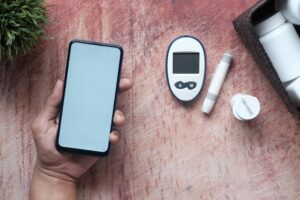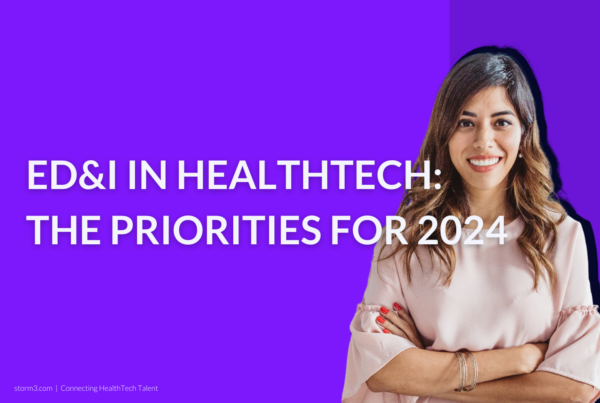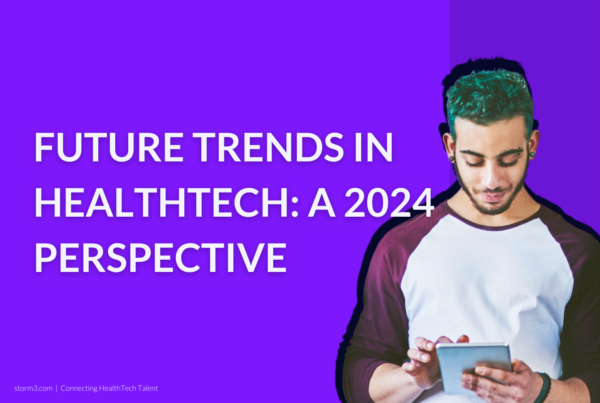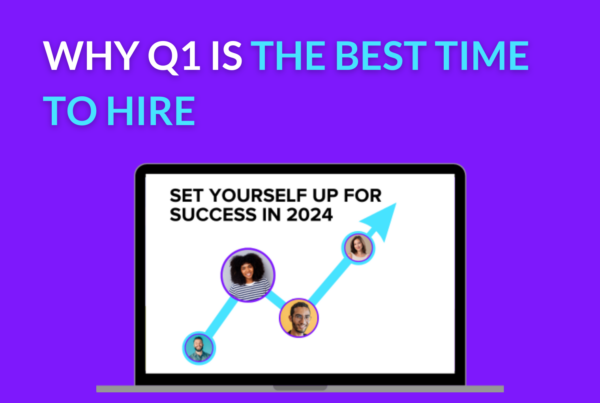Over 463 million people are living with diabetes around the world. And whether its type 1, type 2, or pregestational diabetes, there is no break from living with this condition.
Diabetes and its complications cost over £10 billion each year to treat; 80% of this cost could be prevented through better management. With the number of people living with diabetes being predicted to rise to 700 million by 2045, creating greater access to diabetes care and educational resources is more important than ever.
The focus of Diabetes Awareness Month 2021 is improving access to diabetes care. Whilst a cure for diabetes is yet to exist, this year marks 100 years since the discovery of insulin – a crucial medication for managing diabetes. To spotlight the huge leap technology has made over the last century, we want to emphasise the incredible progress HealthTech companies across the globe have made in easing the burden of diabetes management and care access.
The Current State Of Accessibility
New technologies continue to offer effective management solutions to those with diabetes. However, access and information on new products remains limited. Not only is national diabetes month a time to honour the remarkable progress of technology, it’s also a time to step back and realise that this is a condition which does not discriminate. 79% of adults with diabetes are living in low-and middle-income countries. Specifically, the likelihood of developing type 2 diabetes is reported to be as much as 6 times higher in South Asians than in Europeans. In addition, South Asians tend to have poorer diabetes management and face greater barriers to accessing healthcare resources.
Ultimately, the breakthrough of diabetes technologies and even fundamental components of diabetes care remain beyond the reach of many who need them. However, the pandemic has brought increased attention to the significant health disparities faced by millions from low-income and underserved populations, and access to diabetes care in these regions is increasing.
Tracey D. Brown, CEO at the American Diabetes Association comments:
“Access is at the center point of how we can bridge the inequity gap for people with diabetes. Everyone living with diabetes should be able to lead healthy, full lives and that begins with ensuring widespread access to the latest technologies, including continuous glucose monitoring technology.”
To address economic health disparities, the medical device company Abbott has committed $5 million over the next three years to champion the right for all people with diabetes to have access to greater care, including access to the latest technological advances. This includes community initiatives and efforts to support low-income Americans.
Diabetes Management: The Mental Health Implications
The day to day demands of living with diabetes can have a huge impact on a person’s mental health. A survey by Diabetes UK found that three in five people will experience emotional or mental health problems, with one in five seeking support from counselling or a trained professional to help them manage the burden of everyday diabetes.
Chris Askew, Chief Executive of Diabetes UK said:
“Effective diabetes care requires that a person’s emotional needs are taken into account alongside their physical care needs.”
The demands of managing a ‘perfect’ diabetes day are just as much psychologically draining as physically, with many diabetes support apps and devices advocating that ‘diabetes is easy – if you follow the rules consistently’. However, there is no such thing as a perfect diabetes day, a factor that many HealthTech support apps like Glucose Buddy and Diabetes:M are advocating.

Technological Advances In Diabetes Care
Diabetes Management Apps:
A vital gap in the healthcare system is providing people with diabetes enough access to personal advice.
This is where HealthTech apps such as Quin diabetes come in. By understanding that every person with diabetes has different needs, Quin provides its users with hyper-personalised care to help people make more informed diabetes management decisions. The apps educational tools helps people to feel more confident and in control of their diabetes, and gives them the ability to discover what care management works best for them.
Another HealthTech advancing access to diabetes care is MySugr. With an impressive 3 million plus users, the app uses digital tracking of blood glucose levels to make logging less of a chore. The app stores important diabetes data from connected devices, integrations and manual entries into one convenient place, helping its users remain confident and motivated with their diabetes care.
Continuous Glucose Monitors (CGMs):
A Continuous Glucose Monitor (CGM) is an innovative device that is worn just under the skin and measures glucose levels continuously. Through a Bluetooth device, users can effortlessly scan and analyze the results gathered by the CGM to understand their glucose patterns and share results with healthcare professionals.
Abbots Freestyle Libre, for example, was designed to liberate patients from the hassles of traditional glucose monitoring. Its small and discreet sensor can be scanned through clothing and it provides real-time glucose readings for up to 10 days, giving peace of mind to the everyday life of diabetics.
“Using a CGM compared to traditional blood glucose monitoring with fingersticks can reduce potentially harmful and expensive complications, leading to an overall cost savings for individuals living with type 1 and type 2 diabetes.”
Diabetes affects everyone differently. Technological advances like CGM’s are providing a personalised fit to the diverse needs of diabetics, and they’re supporting those living with diabetes by giving them greater access to effective management.
“In the meantime, the diabetes industry needs to focus on helping people to live the lives they want, making that help affordable and accessible, and supporting people through the good blood sugar days and the bad.”

The Bigger Picture
Diabetes management is a full-time job. A report found that on average, people with diabetes spend only three hours a year with a healthcare professional; the remaining 8,757 hours, their diabetes is self-managed.
To bring about better access, and ultimately, reduce healthcare implications, a radical improvement in provisions and an uptake of diabetes education courses is urgently needed. Fortunately, technology’s role in diabetes care is only growing, with mobile tools, in particular, playing a more prominent part in helping patients to monitor the disease.
This article was written by Shannon Riskey, Storm3’s expert Product Management consultant. If you’re looking to make your next strategic product hire, or are searching for your next product role, get in touch! Alternatively, learn more about our Product function and the roles we work with here.








